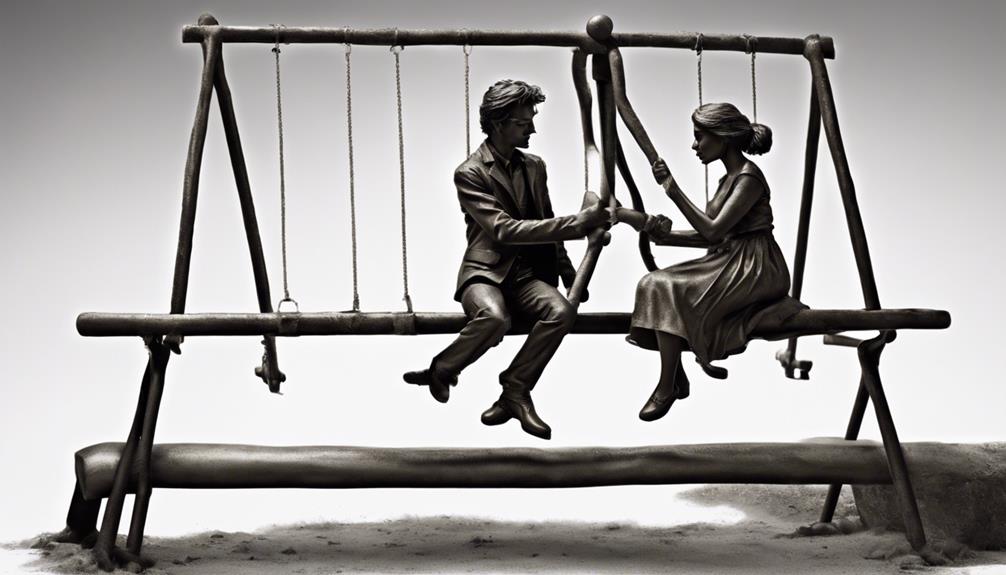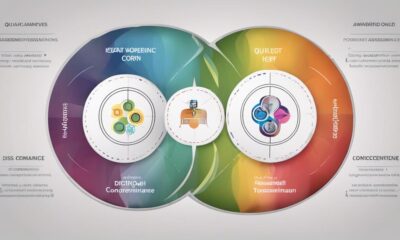Childfree
Embracing the Childfree Lifestyle in Japan
Keen to uncover the intriguing reasons behind Japan's growing trend of choosing a childfree life?

As we look out onto the busy streets of Tokyo, it is clear that a silent revolution is underway, defying traditional views on family and happiness.
The decision to lead a childfree life in Japan is gaining traction, with a myriad of reasons driving individuals to opt out of parenthood.
But what are the implications of this societal shift, and how is Japan adapting to this changing landscape?
Let's explore the complexities and nuances of embracing the childfree lifestyle in a country known for its strong emphasis on tradition and familial ties.
Key Takeaways
- Growing acceptance of childfree choice reflects evolving societal expectations.
- Factors like high living costs and career focus influence childfree decisions.
- Childlessness challenges traditional norms, reshaping family dynamics in Japan.
- Embracing personal fulfillment over parenthood redefines success and societal norms.
Changing Perspectives on Parenthood
Changing societal norms in Japan have led to a growing acceptance of the childfree lifestyle. Demographic trends show a significant increase in the number of Japanese women choosing to remain childless, shifting the perception of childlessness as a valid lifestyle choice. Factors such as population aging, declining birth rates, and a focus on individual fulfillment are influencing this decision. More Japanese adults are embracing the childfree lifestyle as a showcase of the future, reflecting a changing landscape where societal expectations around marriage and parenthood are evolving.
This shift allows for greater freedom in personal choices, with the acceptance and normalization of childlessness in Japanese society signifying a departure from traditional norms. It indicates a broader acceptance of diverse consumer practices and life paths. This trend highlights a fundamental change in how parenthood is perceived, emphasizing the importance of personal agency and autonomy in shaping one's life journey.
Factors Influencing Childfree Choices

Frequently, the high cost of living in urban areas like Tokyo dissuades young couples from choosing to have children. As we navigate the landscape of childfree choices in Japan, several factors come into play:
- Shifting Cultural Attitudes: Japanese women are increasingly prioritizing career advancement and personal fulfillment over traditional family roles, challenging societal norms.
- Limited Support for Working Parents: The lack of adequate support for working parents, such as long working hours and insufficient childcare options, influences many to opt for a childfree lifestyle.
- Changing Social Expectations: Evolving social norms in Japan are redefining the traditional expectations of parenthood, allowing individuals to explore childlessness as a viable lifestyle choice.
These dynamics intersect with broader demographic trends, including population aging and declining fertility rates, shaping Japan's unique consumer practices within the context of wealthy nations.
As we delve deeper into the reasons behind embracing a childfree lifestyle, it becomes evident that various economic, social, and cultural factors are steering individuals towards reimagining the concept of family and fulfillment.
Social Stigma Surrounding Childlessness
Shifting societal norms in Japan challenge ingrained expectations of parenthood, particularly surrounding the social stigma attached to childlessness. The pressure to conform to traditional family structures in Japan often results in judgment and discrimination against those who opt for a childfree lifestyle. Historical values emphasizing the significance of family and lineage contribute to the stigma surrounding childlessness, creating societal expectations that can be difficult to navigate. However, the gradual shift towards individualism is challenging these norms, allowing more individuals to embrace the decision to remain childfree. Despite the lingering stigma, there is a notable trend in Japan where people prioritize personal fulfillment over adhering to traditional family roles, reflecting a changing perspective within the population.
| Keywords | Description |
|---|---|
| Japan | Country where societal norms impact attitudes towards childlessness. |
| Social Stigma | Negative perceptions attached to those who choose not to have children. |
| Traditional Family Structures | Expectations linked to established family dynamics in Japanese society. |
| Individualism | Ideology that values personal independence and choice over societal pressures. |
Impact on Japanese Society

Influencing various aspects of Japanese society, the choice to lead a childfree lifestyle is reshaping traditional family dynamics and societal expectations. As Japan grapples with population aging and declining birth rates, the acceptance of childlessness as a valid lifestyle is altering the social fabric in significant ways.
- Demographic Trends: The rise in childlessness is contributing to a demographic shift in Japan, impacting everything from consumer patterns to healthcare needs.
- Economic Growth: The global strategy consulting group has highlighted how the choice to remain childfree can influence long-term economic growth prospects in Japan.
- Future Societal Expectations: Embracing childlessness today is redefining what the future of Japanese society may look like, challenging ingrained beliefs about family structures and individual fulfillment.
These shifts in societal norms and expectations are crucial as Japan navigates the complexities of an aging population and changing dynamics within its workforce and communities.
Embracing Personal Fulfillment
Embracing personal fulfillment through the childfree lifestyle in Japan involves prioritizing self-fulfillment and alternative sources of happiness.
In a global context of demographic trends like population aging and falling birth rates, Japan stands out as a nation where individuals are redefining success beyond parenthood. This shift challenges traditional societal norms and expectations, allowing for a focus on individualism and personal autonomy.
Within wealthy nations like Japan, where consumer practices often revolve around family structures, choosing a childfree life can be a bold statement. It signifies a departure from the norm, emphasizing self-expression and the pursuit of personal passions.
Frequently Asked Questions
What Is the Childlessness Rate in Japan?
We're seeing around 1 in 4 Japanese women remaining childless, reflecting a significant societal shift.
Approximately 30% of Japanese women in their early 50s are childless as of 2022.
Japan's declining birth rates have contributed to this rise, challenging traditional family structures.
Factors like delayed marriages, career-focused lifestyles, and economic pressures play a role in this trend.
What Country Has the Most Childless Couples?
We're not sure about the country with the most childless couples, but it's interesting to see this trend worldwide.
It's a shift that challenges traditional norms and offers different perspectives on family life.
The reasons behind this choice can vary, from economic pressures to personal preferences.
It's a reminder of how diverse our paths to happiness can be, and we should respect everyone's choices in this matter.
Is It Good to Raise a Child in Japan?
Raising a child in Japan has its challenges. Financial pressures and societal expectations can make it tough. However, the country offers excellent education and safety.
Families navigate a delicate balance between work and family life. It's crucial to consider these factors when deciding to have children in Japan.
What Are Some Common Challenges of Embracing the Childfree Lifestyle, as Discussed by Marcela Munoz?
Embracing the childfree lifestyle can come with various challenges, as discussed by Marcela Munoz. These may include societal pressure to conform, judgment from family and friends, and a lack of understanding from others. Munoz highlights the need for support and community for those who choose this path.
Conclusion
As we reflect on the changing landscape of parenthood in Japan, we can see a blossoming of personal freedom and fulfillment.
The theory that embracing the childfree lifestyle leads to a more balanced and fulfilling life is evident in the vibrant colors of individual choice and happiness.
Let's continue to support and respect each other's decisions, creating a society where personal fulfillment is celebrated above all else.
Augustus is the visionary leader and Editor-in-Chief of Personality-Test.net. With an unwavering commitment to quality and authenticity, he oversees all content, ensuring it enlightens and empowers our audience. Augustus believes deeply in the transformative power of self-awareness and is dedicated to making Personality-Test.net a beacon for those on a journey to understand themselves better.
Childfree
Embracing the Love of Being Childfree
Journey into the world of childfree living, where unexpected insights and personal fulfillment await – discover the unique path ahead.

Different people have different preferences, and embracing the choice to be childfree opens up a world of opportunities for self-discovery.
The decision to forgo parenthood is often met with skepticism, yet it offers a unique perspective on life and personal fulfillment.
Exploring the nuances of a childfree lifestyle can lead to unexpected insights and a deeper understanding of one's own desires and aspirations.
Key Takeaways
- Choosing a childfree lifestyle offers personal growth and financial stability.
- Childfree individuals prioritize personal happiness and well-being.
- Embracing a childfree life allows for self-discovery and continuous personal evolution.
- Building strong relationships and community support enhances the joy of being childfree.
Benefits of Choosing a Childfree Lifestyle
Choosing a childfree lifestyle offers financial stability and personal growth opportunities. It can lead to higher life satisfaction and success in various aspects of life. Without the financial responsibilities that come with raising children, we have more resources to invest in ourselves and our passions.
This personal freedom allows us to make life choices that align with our deepest desires and aspirations, rather than conforming to societal norms. By prioritizing personal growth and career advancement, childfree individuals often achieve fulfilling lives that are rich in experiences and accomplishments.
Our decision-making process becomes focused on what truly brings us joy and fulfillment, leading to a sense of contentment and purpose. Embracing the childfree lifestyle opens up a world of possibilities and allows us to cultivate a life that's authentic to who we are at our core.
Overcoming Common Misconceptions

Let's set the record straight and challenge common misconceptions about being childfree. Debunking stereotypes and recognizing personal choice empower individuals to live authentically.
Debunking Stereotypes
Despite prevailing stereotypes, childfree individuals are just as fulfilled and content in their lives as parents, as studies have shown.
- Childfree individuals typically don't regret their decision, emphasizing the thoughtful consideration behind choosing a childfree lifestyle.
- Concern for overpopulation and personal fulfillment are common reasons influencing the decision to be childfree.
- Different life choices, whether parenthood or being childfree, can lead to satisfaction and fulfillment based on individual preferences.
Choosing to be childfree is a valid decision that should be respected, as it's often made after careful thought and consideration. It's essential to recognize that personal fulfillment can be achieved through various paths, and being childfree is one of them. Let's celebrate the diversity of choices that lead to happiness and contentment.
Personal Choice Power
Moving beyond misconceptions, we empower individuals to embrace the personal choice power of being childfree. Choosing to be child-free is a decision that empowers individuals to prioritize their own happiness and well-being. This personal choice reflects autonomy over one's life path and should be respected as valid. Contrary to common misconceptions, being child-free does not equate to selfishness but rather signifies thoughtful consideration and self-awareness. Embracing a child-free lifestyle often leads to higher life satisfaction and lower stress levels, debunking myths about fulfillment. By recognizing and celebrating diverse choices, including being child-free, we create a supportive environment that values individual autonomy and personal happiness.
| Personal Choice Power | |
|---|---|
| Child-free lifestyle | Empowers individuals |
| Prioritizing happiness | Fosters well-being |
| Autonomy over life path | Debunks misconceptions |
| Higher life satisfaction | Supports personal choice |
| Lower stress levels | Celebrates diversity |
Finding Joy in Personal Freedom
Embracing the choice to be child-free opens up a world of personal freedom and opportunities for self-discovery and growth. Child-free individuals have the chance to truly focus on themselves and their personal fulfillment. Here's how we find joy in this newfound freedom:
- Time for Self-Care: Without the responsibilities of raising children, we've more time to invest in ourselves. This means indulging in hobbies, taking care of our physical and mental well-being, and prioritizing activities that bring us joy.
- Exploring Personal Growth: Being child-free allows us to continuously evolve and grow as individuals. We can pursue education, career advancements, or personal goals without constraints. This journey of self-discovery brings immense happiness and satisfaction.
- Stronger Relationships: Freed from the demands of parenting, we can nurture deeper connections with our partners. Our relationships can flourish as we focus on mutual goals, communication, and shared experiences. This bond strengthens our sense of personal freedom and fulfillment.
Building Meaningful Relationships

Investing time in building meaningful relationships is essential for child-free individuals to create fulfilling and enriching social connections. As child-free adults, we've the opportunity to dedicate more time to nurturing friendships and forming deep emotional support networks. These connections go beyond the surface level, allowing us to cultivate unique bonds with like-minded individuals who understand our choice. By surrounding ourselves with friends, family, and others who share our child-free lifestyle, we can forge relationships based on mutual respect and support.
Having a wider range of friendships enables us to explore diverse perspectives and engage in meaningful conversations. We can lean on our emotional support networks during challenging times, knowing that we've a strong foundation of relationships to rely on. Through these connections, we not only find companionship but also create a sense of belonging and understanding that enriches our lives. Embracing the love of being child-free means cherishing the deep and meaningful relationships we build along the way.
Celebrating Self-Care and Independence

We believe that embracing a child-free lifestyle opens the door to prioritizing self-care practices that nurture our well-being.
By celebrating independence, we can embark on empowering solo adventures that allow us to grow and learn more about ourselves.
Engaging in self-love practices and exploring the world on our terms are essential components of embracing the freedom that comes with being child-free.
Self-Love Practices
Prioritizing self-care routines and embracing independence are essential components of self-love practices in the child-free lifestyle. Here are three key ways to foster self-love in our daily lives:
- Setting Boundaries: We honor our needs by establishing healthy boundaries that protect our time, energy, and emotional well-being.
- Pursuing Personal Interests: By investing in activities that bring us joy and fulfillment, we nurture our passions and cultivate a sense of purpose outside societal expectations.
- Investing in Mental and Emotional Well-being: Self-love involves prioritizing our mental health through practices like therapy, mindfulness, and self-reflection, fostering growth and resilience.
Embracing these practices allows us to build a strong foundation of self-compassion and independence in our child-free journey.
Empowering Solo Adventures
Embracing solo adventures empowers individuals in their child-free journey by celebrating self-care and independence. Self-care is not just a trendy term; it's a vital practice for our well-being. Taking solo trips allows us to cater to our personal needs and desires without any external pressures. This independence fosters personal growth and self-discovery, leading to a profound sense of empowerment. Through these adventures, we create memories, learn about ourselves, and find fulfillment in our child-free lifestyle. The freedom to explore spontaneously and nurture ourselves without parental responsibilities is a gift we cherish. Let's embark on these journeys, not just to see new places, but to truly connect with ourselves and embrace the love of being childfree.
| Benefits of Solo Adventures | Impact on Individuals |
|---|---|
| Promotes self-care | Enhances well-being |
| Fosters independence | Leads to personal growth |
| Cultivates empowerment | Brings fulfillment |
Embracing the Childfree Community

A growing number of individuals are finding support and camaraderie within the vibrant child-free community across various online platforms. Social media has played a pivotal role in connecting like-minded individuals and fostering a sense of belonging. Here are three key aspects of embracing the child-free community:
- Child-Free Advocates: These individuals are instrumental in normalizing and advocating for the child-free lifestyle, championing individual rights and autonomy.
- Online Platforms: From Reddit to Instagram, TikTok, and communities like We Are Childfree in Berlin, these platforms have become hubs for sharing experiences, advice, and building friendships within the child-free community.
- Content Creators: Influential figures in the child-free community, these creators use their platforms to showcase the joys of a child-free life, offering inspiration and solidarity to others on a similar path.
Embracing the child-free community involves celebrating diverse perspectives, supporting each other's choices, and creating a positive space for those who've chosen a life without children.
Frequently Asked Questions
How Do You Accept You'll Never Have Kids?
We accept that we'll never have kids by acknowledging our feelings, exploring our reasons, and finding peace in our decision.
We focus on what brings us joy, nurturing relationships, pursuing dreams, and embracing the freedom that comes with our choice.
Seeking support from like-minded individuals and communities helps us navigate this path confidently.
It's about prioritizing our well-being and happiness, knowing that living childfree is a valid and fulfilling option for us.
What Is the Regret Rate for Childfree People?
We've seen that the regret rate for childfree individuals ranges from 5-20%. However, most of us are content with our decision to be childfree and don't experience regret.
Factors like autonomy, financial security, and meaningful relationships play a significant role in our satisfaction. Choosing to be childfree often leads to high levels of happiness and life fulfillment.
The regret rate is notably lower for us compared to those who choose parenthood.
How Do Childless Couples Cope?
We cope by nurturing our bond, cherishing shared interests, and supporting each other's growth.
Prioritizing self-care and seeking connections beyond our relationship enriches our lives.
Open communication, mutual goals, and celebrating our choices strengthen our journey.
What Are the Psychological Effects of Childlessness?
We find that the psychological effects of childlessness vary greatly among individuals. Studies suggest childless individuals often report higher life satisfaction and well-being compared to parents. Factors such as social support, personal goals, and fulfillment in life pursuits play key roles.
While childlessness isn't linked to negative psychological effects, each person's experience is unique, and many childfree individuals lead fulfilling and happy lives.
What Are Some Benefits of Embracing the Childfree Lifestyle?
There are many benefits of being childfree, including having the freedom to travel and pursue personal interests, enjoying a more flexible lifestyle, and experiencing a stronger sense of independence and self-fulfillment. Embracing the childfree lifestyle means embracing these opportunities and living life on your own terms.
Conclusion
In the garden of life, we've chosen to nurture our own unique blooms, free from the constraints of parenthood. Embracing the love of being childfree allows us to flourish and thrive in our own way, cultivating a sense of personal fulfillment and happiness.
Like butterflies dancing freely in a meadow, we revel in the beauty of our choices and the joy of living life on our own terms. Join us in this vibrant tapestry of childfree living, where possibilities are endless and hearts are full.
Augustus is the visionary leader and Editor-in-Chief of Personality-Test.net. With an unwavering commitment to quality and authenticity, he oversees all content, ensuring it enlightens and empowers our audience. Augustus believes deeply in the transformative power of self-awareness and is dedicated to making Personality-Test.net a beacon for those on a journey to understand themselves better.
Childfree
What Factors Influence Your Childfree Decision?
Uncover the hidden depths behind childfree decisions, revealing the intricate tapestry of influences that shape our paths.

In the garden of life, various seeds sprout to form our childfree decision. We navigate a labyrinth of influences like societal norms, personal ambitions, financial stability, and intimate relationships.
But what about the untold stories behind closed doors, the silent struggles, and the unspoken desires that shape our paths? Let's explore the intricate tapestry of factors that mold our choices, unraveling the complexities that lead us to embrace or challenge the notion of parenthood.
What lies beneath the surface may surprise us all.
Key Takeaways
- Personal values and beliefs drive the decision to be childfree.
- Career aspirations impact the choice to forgo parenthood.
- Financial considerations play a significant role in opting for a childfree lifestyle.
- Relationship dynamics and emotional connections influence the decision to remain childfree.
Personal Values and Beliefs
Our childfree decision is deeply rooted in our firm beliefs and values, shaping our perspectives on parenthood. Society often imposes expectations about starting a family, assuming it as a natural progression in life. However, our personal values lead us to challenge these norms and question the traditional roles assigned by societal standards.
We believe in the importance of individual freedom and personal fulfillment. Choosing to remain childfree aligns with our core values of autonomy and authenticity. Concerns about overpopulation and environmental sustainability also weigh heavily on our decision. We feel a sense of responsibility towards the planet and future generations, making the choice to not have children a conscientious one.
Career and Professional Aspirations

In considering our decision to be childfree, career advancement and professional aspirations significantly influence our choices. Pursuing demanding careers that require extensive time, dedication, and focus can sway individuals towards a childfree lifestyle.
Balancing the demands of a career with the responsibilities of parenthood is a crucial factor for those opting not to have children. Many of us prioritize opportunities for career growth, travel, and achieving a healthy work-life balance over starting a family.
The desire to attain personal and professional success without the constraints of raising children serves as a strong motivator for embracing a childfree life. Making choices that align with our career goals and aspirations allows us the freedom to fully invest in our professional endeavors and create a fulfilling life on our own terms.
Financial Considerations
How do financial considerations impact the decision to lead a childfree lifestyle? When it comes to choosing to be childfree, financial factors play a crucial role in the decision-making process. Concerns about financial constraints, job insecurity, and limited career opportunities often lead individuals to opt for a childfree life. Prioritizing financial independence and stability over the significant expenses associated with raising children is a common theme among those who choose to remain childfree. The high costs of childcare, education, and healthcare are key considerations that influence individuals to steer clear of parenthood.
| Financial Constraints | Job Insecurity | Limited Career Opportunities |
|---|---|---|
| Financial Independence | Childcare Costs | Education Expenses |
| Healthcare Expenses |
Relationship Dynamics

Considering the importance of relationship dynamics in the decision-making process of leading a childfree lifestyle, many individuals prioritize maintaining strong emotional connections with their partners over starting a family. This choice is often driven by a desire to enhance intimacy and love within the relationship, leading to higher levels of marriage satisfaction among childfree men and women. Personal relationships and emotional connections take precedence for those opting out of parenthood, fostering a deeper bond between partners. The decision to remain childfree can be a reflection of the value placed on the partner relationship, where mutual understanding and support flourish.
- Childfree individuals prioritize personal relationships and emotional connections with their partners.
- Marriage satisfaction tends to be higher among childfree couples.
- Intimacy and relationship dynamics play a significant role in the childfree decision-making process.
- Partner relationships are prioritized over starting a family for many childfree men and women.
Social Pressures and Expectations
Partner relationships are often challenged by the societal pressures and expectations surrounding parenthood, influencing individuals' decisions regarding leading a childfree lifestyle. Social pressures rooted in traditional family norms can create expectations of parenthood, especially impacting women who may face specific societal expectations regarding motherhood.
The stigma attached to childlessness in certain cultures and communities adds to the complexity of the decision-making process, as individuals may feel judged or excluded for choosing not to have children. Furthermore, pressure from various social circles, including friends, relatives, and colleagues, can create a sense of obligation to conform to the norm of procreation.
Cultural beliefs that prioritize the value of having children contribute to the overarching societal pressure felt by those considering a childfree life. Navigating these social pressures and expectations requires thoughtful consideration and understanding of one's own values and desires in the face of external influences.
Frequently Asked Questions
What Are the Five Most Important Factors That Influence Your Decision to Have or Not Children?
We've considered various aspects when deciding on having children.
Our personal values, career goals, financial situation, relationship dynamics, and societal expectations all factor into this choice.
Each of these elements contributes to our decision-making process, shaping our perspective on parenthood.
It's a complex mix of factors that ultimately guides us in determining whether or not to have children.
What Factors Go Into the Decision to Have a Baby?
When deciding to have a baby, we face a myriad of factors that shape our choices. From personal limitations and societal pressures to economic concerns and health considerations, our decision is a complex interplay of various influences. Each factor weighs on our minds as we navigate the path towards parenthood, ultimately guiding us towards what feels right for our future.
It's a journey filled with uncertainties and emotions, but one that leads us to profound self-discovery.
What Four Things Impact the Decision to Have Children?
Economic factors, societal influences, health concerns, and relationship dynamics all impact the decision to have children. These elements can shape our choices and guide us towards what feels right for our future.
We weigh the pros and cons, considering how each factor plays a role in our lives. Our decisions are deeply personal and influenced by a combination of these important factors.
Why Are People Choosing Not to Have Children?
We choose not to have children for various reasons. Concerns about personal freedom, lifestyle, and relationships play a significant role. Environmental responsibility and ethical considerations also guide our decision.
Witnessing the stress and challenges faced by parents influences our choice. Prioritizing our relationship and intimacy with our partner is paramount. This decision is a gradual process shaped by personal attitudes, childhood experiences, and reflections on parenthood.
Conclusion
As we reflect on the factors that influenced our decision to be childfree, we've discovered that personal values and beliefs, career aspirations, financial considerations, relationship dynamics, and societal pressures all played a significant role. By delving deeper into these aspects, we've confirmed that the theory that individual autonomy and self-determination are key drivers in choosing a childfree lifestyle holds true.
Embracing our choices with confidence and conviction, we navigate a path that aligns with our true selves.
Augustus is the visionary leader and Editor-in-Chief of Personality-Test.net. With an unwavering commitment to quality and authenticity, he oversees all content, ensuring it enlightens and empowers our audience. Augustus believes deeply in the transformative power of self-awareness and is dedicated to making Personality-Test.net a beacon for those on a journey to understand themselves better.
Childfree
5 Best Childfree Cartoons for a Fun and Relatable Watch
Dive into the world of childfree cartoons with these top picks, offering a mix of entertainment and relatability that will leave you wanting more.

In the world of childfree cartoons, it’s interesting to observe that more than 20% of adults without children appreciate watching animated shows, according to recent studies.
When it comes to finding the perfect blend of entertainment and relatability, these five top picks stand out. From the heartwarming tales in Bluey to the witty humor of BoJack Horseman, each show brings its unique charm to the table.
So, which of these cartoons will become your next favorite?
Key Takeaways
- Bluey: Heartwarming and versatile show resonating with all ages.
- BoJack Horseman: Realistic portrayal of mental health struggles with depth.
- Rick and Morty: Dark humor and philosophical depth in bizarre adventures.
- Big Mouth: Fearlessly tackles puberty with humor and honesty.
Bluey
Bluey, the most mentioned show on the Childfree Cartoons for Fun Watching Facebook group, has garnered unparalleled greatness and widespread popularity among viewers. As avid fans ourselves, we understand the allure of this delightful animated series. The high praise and positive reviews within our community are a testament to the show's undeniable charm and appeal.
One of the striking aspects of Bluey is its ability to resonate with a broad audience. Not only is it a favorite among childfree individuals, but it also captivates parents with its heartwarming stories and relatable characters. This cross-generational appeal sets Bluey apart from other cartoons, making it a go-to choice for family viewing sessions.
Moreover, the show's suitability for all ages makes it a versatile option for entertainment. Whether you're seeking a light-hearted escape or a meaningful lesson, Bluey delivers on both fronts. With easy access on Disney+, experiencing the magic of Bluey has never been more convenient.
BoJack Horseman

As devoted fans of adult animation, 'BoJack Horseman' has captivated us with its dark humor, complex characters, and profound exploration of mental health and existential themes.
- Realistic Portrayal: 'BoJack Horseman' stands out for its realistic portrayal of mental health struggles, addiction, and the consequences of fame. The show doesn't shy away from addressing these issues in a raw and unfiltered manner.
- Character Depth: Each character in the series is meticulously crafted with layers of complexity. From BoJack's self-destructive tendencies to Princess Carolyn's unwavering resilience, the characters feel authentic and relatable.
- Critical Acclaim: 'BoJack Horseman' has garnered critical acclaim for its storytelling prowess and its ability to tackle sensitive topics with nuance. The show has been praised for its ability to blend comedy and drama seamlessly, creating a truly captivating viewing experience.
Rick and Morty
Exploring the multiverse through the misadventures of an eccentric scientist and his easily influenced grandson, 'Rick and Morty' captivates audiences with its dark humor and philosophical undertones. Created by Justin Roiland and Dan Harmon, this adult animated sci-fi sitcom delves into the chaotic escapades of Rick, an alcoholic genius, and Morty, his kind-hearted but impressionable grandson.
The show's blend of dark humor, intricate storytelling, clever pop culture references, and thought-provoking themes has garnered it a devoted fan base and critical acclaim for its originality. 'Rick and Morty' has even clinched prestigious awards, including an Emmy for Outstanding Animated Program, solidifying its place in the realm of animated entertainment.
With its unique take on science fiction and willingness to push boundaries, 'Rick and Morty' offers viewers a wild and intellectually stimulating ride through the bizarre and often absurd adventures of its dynamic duo.
Big Mouth

Delving into the awkward and hilarious world of puberty, 'Big Mouth' entertains viewers with its crude humor and frank discussions. The creators of the show, Nick Kroll, Andrew Goldberg, Mark Levin, and Jennifer Flackett, have crafted a series that brilliantly captures the challenges of adolescence. Here are three reasons why 'Big Mouth' stands out:
- Honest Portrayal: 'Big Mouth' fearlessly tackles the sensitive topic of puberty with raw honesty, presenting it in a way that many can relate to on a personal level.
- Clever Storytelling: The show blends humor with insightful storytelling, making the journey through puberty not only entertaining but also thought-provoking.
- Dedicated Fan Base: With its humor, wit, and relatability, 'Big Mouth' has garnered a dedicated fan base that appreciates its unique approach to discussing the trials and tribulations of growing up.
Futurama
After exploring the candid world of puberty in 'Big Mouth', let's now shift our focus to the futuristic adventures of 'Futurama'. 'Futurama' is an adult animated sci-fi sitcom created by Matt Groening, known for its clever humor, satirical take on society, and memorable characters. The show originally aired from 1999 to 2013, amassing a cult following that cherishes its witty writing and imaginative storytelling.
In 'Futurama', we follow the escapades of Fry, a 20th-century slacker who awakens in the 31st century and embarks on a new career as a delivery boy. The series has garnered multiple awards for its unique blend of science fiction and comedy, making it a beloved choice for those seeking a mix of laughter and futuristic adventures.
Let's delve deeper into the charm of 'Futurama' with the following table:
| Aspects | Description |
|---|---|
| Humor | Clever and satirical humor that resonates with fans |
| Characters | Memorable and diverse cast of characters |
| Awards | Multiple accolades for its writing and storytelling |
| Legacy | Cult following and lasting impact on pop culture |
Frequently Asked Questions
What Is the Most Child Friendly Cartoon?
We believe 'Bluey' is the most child-friendly cartoon out there. It's adored by parents and kids of all ages for its heartwarming and engaging episodes.
The universal appeal and positive reception make it a top choice for families seeking quality entertainment. Available on Disney+, 'Bluey' offers easy access to its greatness.
It's no surprise that it's a favorite among many, standing out as a standout in the world of children's shows.
What Is the Best Show for Little Kids?
We love finding the perfect show for little ones! It's all about engaging them with fun and relatable content. From magical adventures to gentle life lessons, there's a wide range of options out there.
We enjoy exploring shows that spark curiosity and imagination in our little viewers. It's a joy to see them laugh, learn, and grow through the power of storytelling on screen.
What Is the Most Loved Cartoon of All Time?
We believe the most loved cartoon of all time is Bluey. Its unparalleled greatness and strong fan base on social media platforms make it a favorite show for many. Enjoyed by both children and parents alike, it offers wholesome entertainment and valuable life lessons.
Available for streaming on Disney+, it's easily accessible and has received high praise and acclaim, cementing its status as a beloved and iconic cartoon series.
Is Wild Kratts Low Stimulating?
We disagree that Wild Kratts is low stimulating. It's like embarking on a wild adventure with the Kratt brothers!
The show cleverly mixes fun, action, and learning about animals, making it an engaging watch for kids.
The animated escapades aren't just entertaining but also educational, teaching children about wildlife and habitats.
Are there any childfree-themed cartoons that feature the same themes as the bumper sticker designs?
Looking for the best childfree bumper stickers? Though childfree-themed cartoons with similar themes are rare, there are some that capture the essence of the popular bumper sticker designs. These cartoons often focus on themes of independence, freedom, and personal choice, mirroring the sentiments expressed in the bumper stickers.
Conclusion
Overall, these top childfree cartoons offer a mix of entertainment and education for viewers of all ages.
Did you know that Bluey, the popular show on Disney+, has won multiple Emmy Awards, including Outstanding Preschool Children's Animated Program?
This just goes to show the widespread appeal and quality of these cartoons, making them a great choice for anyone looking for a fun and relatable watch.
Augustus is the visionary leader and Editor-in-Chief of Personality-Test.net. With an unwavering commitment to quality and authenticity, he oversees all content, ensuring it enlightens and empowers our audience. Augustus believes deeply in the transformative power of self-awareness and is dedicated to making Personality-Test.net a beacon for those on a journey to understand themselves better.
-

 Self-Understanding1 month ago
Self-Understanding1 month agoUnderstanding DMCA Protections & Compliance
-

 Enneagram of Personality3 months ago
Enneagram of Personality3 months agoEnneagram Test: Printable Version for Easy Self-Discovery
-

 Personality Exploration3 months ago
Personality Exploration3 months agoDiscover Your Traits with Atomic Habits Personality Test
-

 Personality Exploration2 months ago
Personality Exploration2 months agoUnderstanding Personality Tests | Our Guide Explained
-

 Personality Exploration4 weeks ago
Personality Exploration4 weeks agoDOPE Personality Test Explained: Traits & Types
-

 DISC Assessment2 months ago
DISC Assessment2 months agoUnderstanding Your DISC Assessment Results: Meaning and Interpretation
-

 Personality Exploration4 weeks ago
Personality Exploration4 weeks agoAlpha Beta Omega Sigma Female Personality Quiz
-

 Relationship Dynamics2 months ago
Relationship Dynamics2 months agoCan a Man Truly Love His Side Chick


















